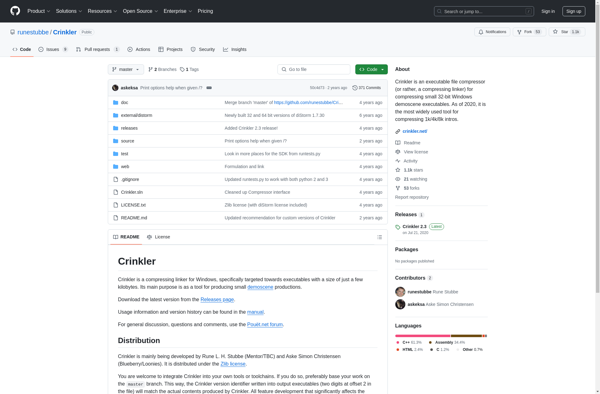UPX

UPX: Open Source Executable Packer for Windows, Linux, macOS
UPX is an open source executable packer that can compress and optimize executable files for Windows, Linux, macOS, and other platforms. It works by analyzing executables, removing unused code and data, and compressing what remains. UPX aims to reduce file size while allowing compressed binaries to launch and run normally.
What is UPX?
UPX (Ultimate Packer for eXecutables) is a popular open source executable packer and compressor for binary files. It was created in 1996 and works by analyzing executables, removing unused code and data segments from them, and compressing what remains using efficient compression algorithms.
One of the key goals and features of UPX is that it can significantly reduce the file size of binaries, often by 50-70%, while still allowing them to launch and run normally. The compressed executables decompress themselves back into memory when launched, by leveraging operating system APIs.
UPX employs advanced data compression techniques like LZMA to shrink executables. It also utilizes a number of optimization methods during compression, like removing debug information, shared library information, unneeded headers, and more from inside the binaries. These optimizations help ensure that the resulting packed binaries launch quickly while occupying minimal disk space.
UPX supports compressing binaries for a wide variety of operating systems, CPU architectures, and file formats. These include EXE, DLL, COM, Mach-O, ELF, Flat binary and other executable formats for Windows, Linux, *BSD, macOS, DOS, BeOS and more on x86, ARM, AArch64, PowerPC CPU architectures. The modular UPX codebase makes supporting new platforms relatively straightforward.
Due to its open source nature, high compression rates and portability, UPX has become the most popular executable packer in the world for making binaries smaller. It strikes a balance between compression and ease-of-use, allowing packed binaries to work correctly on most stock OS installations without requiring custom runtime libraries.
UPX Features
Features
- Compresses executable files
- Supports Windows, Linux, macOS and other platforms
- Open source and free to use
- Removes unused code and data
- Compressed binaries can still run normally
Pricing
- Open Source
- Free
Pros
Cons
Official Links
Reviews & Ratings
Login to ReviewThe Best UPX Alternatives
Top Os & Utilities and File Compression and other similar apps like UPX
Here are some alternatives to UPX:
Suggest an alternative ❐Appetize.io

Themida
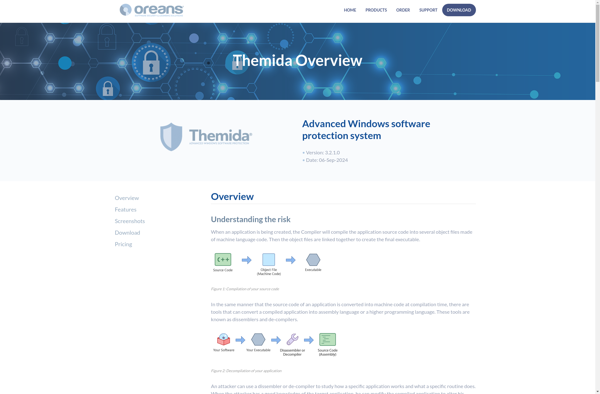
FileOptimizer

WWPack32
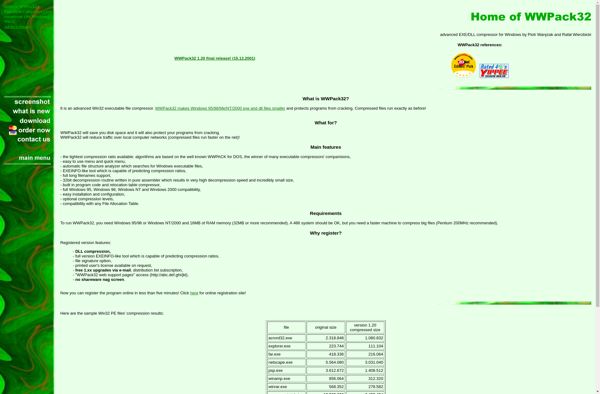
ASPack
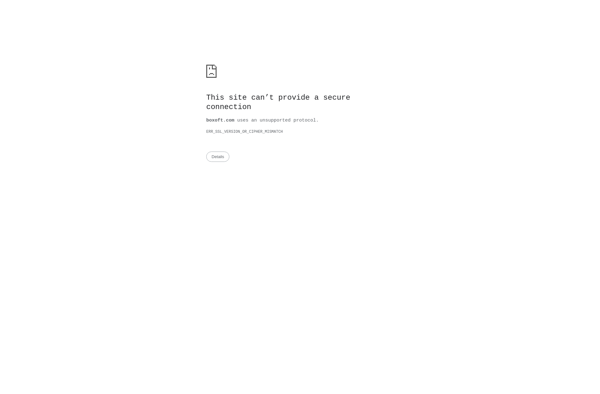
UPX Graphical
Kkrunchy

FUPX
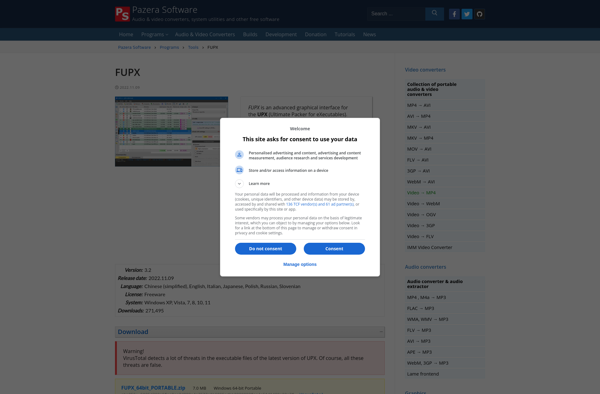
ExEinfo PE

PECompact

Crinkler
